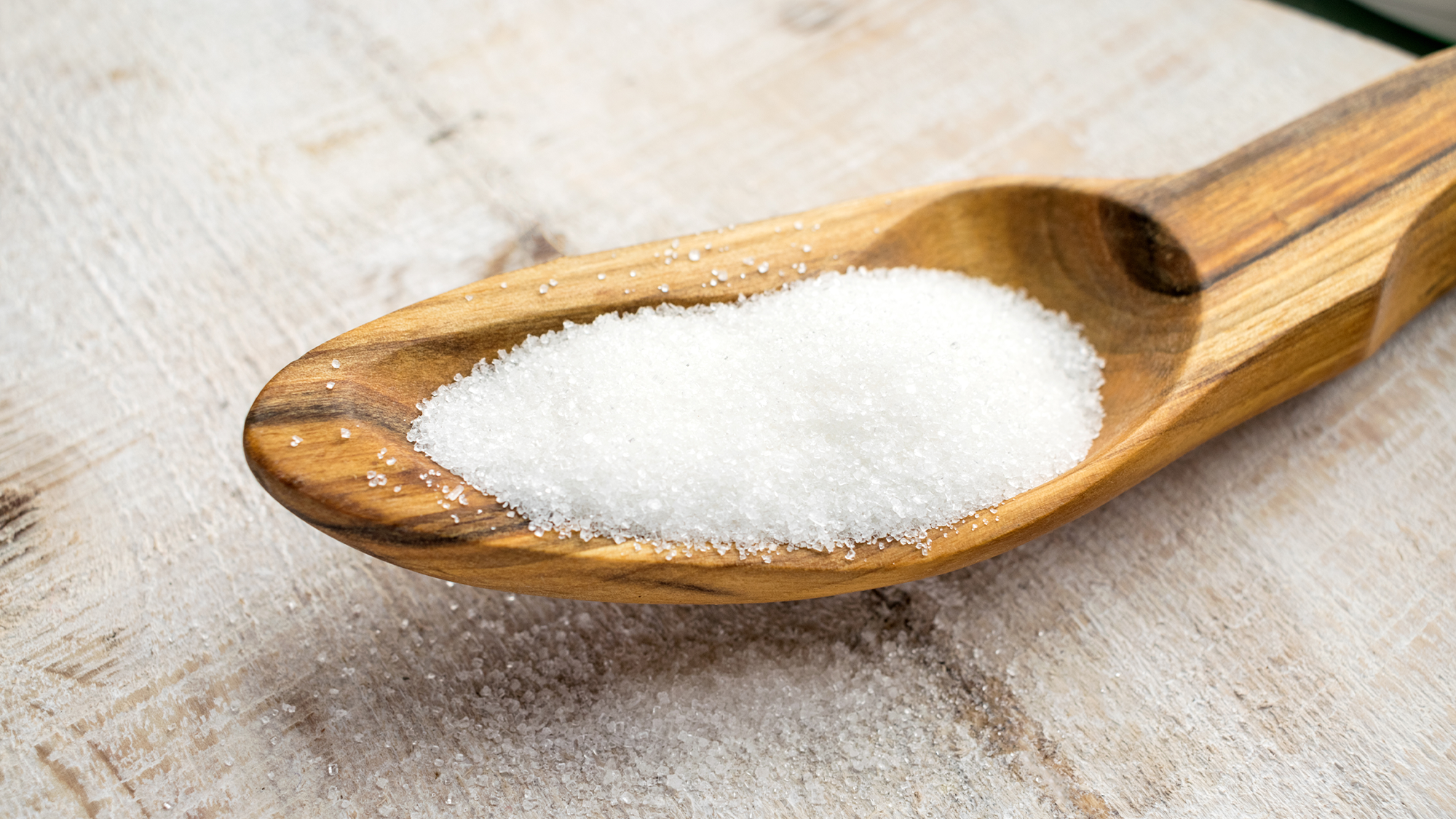

A popular artificial sweetener, erythritol, has been linked to blood clotting, heart attack, stroke, and death, according to a study published February 27 in the journal Nature Medicine. Individuals with elevated factors for heart disease–such as diabetes–were twice as likely to have a heart attack or stroke if their blood contained high levels of erythritol in their blood.
Erythritol and other artificial sweeteners like aspartame and saccharin are common replacements for table sugar in low-calorie, low-carbohydrate, and “keto” branded products. “Sugar-free” products like those containing erythritol are often recommended for individuals with diabetes, metabolic syndrome, or obesity and are looking for options to help manage their sugar or calorie intake.
The product, which can be called a “natural” sweetener because it is made in very small amounts by the human body and in fruits and vegetables, has increased in popularity in recent years. A 2022 report from research firm NielsenIQ found that sales growth for products with erythritol grew by 43 percent over two years and products that claim to have “natural sweeteners” in them grew by 91 percent.
[Related: What we know about diet soda’s connection to heart disease, stroke, and early death.]
“Sweeteners like erythritol have rapidly increased in popularity in recent years but there needs to be more in-depth research into their long-term effects,” said senior author Stanley Hazen, chairman for the Department of Cardiovascular & Metabolic Sciences in Lerner Research Institute and co-section head of Preventive Cardiology at Cleveland Clinic, in a statement. “Cardiovascular disease builds over time, and heart disease is the leading cause of death globally. We need to make sure the foods we eat aren’t hidden contributors.”
In the study, the researchers looked at over 4,000 people in the United States and Europe who were undergoing cardiac evaluation. They found that subjects with higher blood erythritol levels were at elevated risk of experiencing a heart attack, stroke, or death.
In preclinical studies, they also found some evidence erythritol increased the formation of blood clots. To do this, the team looked at the effects of adding erythritol to either whole blood or isolated platelets. These are the cell fragments that clump together to stop bleeding and contribute to blood clots. They found that erythritol made platelets easier to activate and form a clot.
“The degree of risk was not modest,” Hazen told CNN. “If your blood level of erythritol was in the top 25 percent compared to the bottom 25 percent, there was about a two-fold higher risk for heart attack and stroke. It’s on par with the strongest of cardiac risk factors, like diabetes.”
Erythritol is produced by fermenting corn and is about 70 percent as sweet as sugar. After it is eaten, it is poorly metabolized by the body and goes into the bloodstream instead. It leaves the body naturally through urine and the human body does create low amounts of erythritol naturally, so any additional consumption through diet can accumulate in the body.
[Related: Sorry, but artificial sweeteners won’t help you lose weight.]
The study’s authors note that follow-up studies are needed to confirm their findings in the general population. Additionally, the point to several limitations in the study, including that clinical observation studies demonstrate association and not causation.
“Our study shows that when participants consumed an artificially sweetened beverage with an amount of erythritol found in many processed foods, markedly elevated levels in the blood are observed for days – levels well above those observed to enhance clotting risks,” said Hazen. “It is important that further safety studies are conducted to examine the long-term effects of artificial sweeteners in general, and erythritol specifically, on risks for heart attack and stroke, particularly in people at higher risk for cardiovascular disease.”
